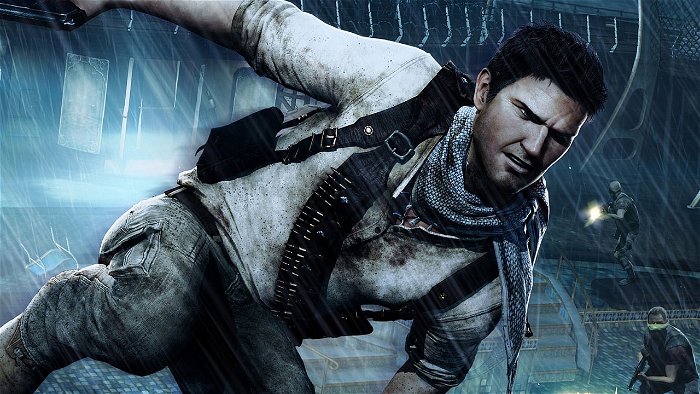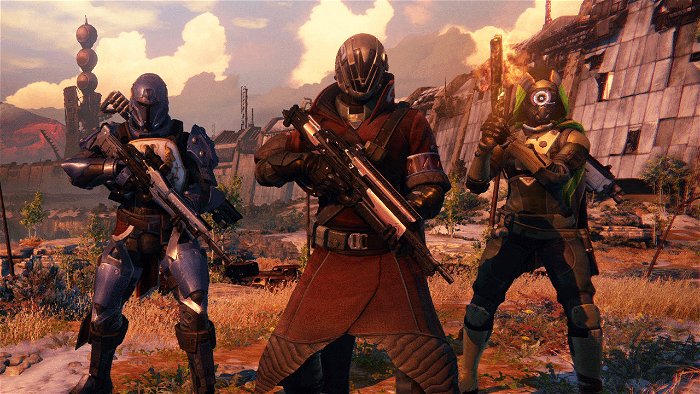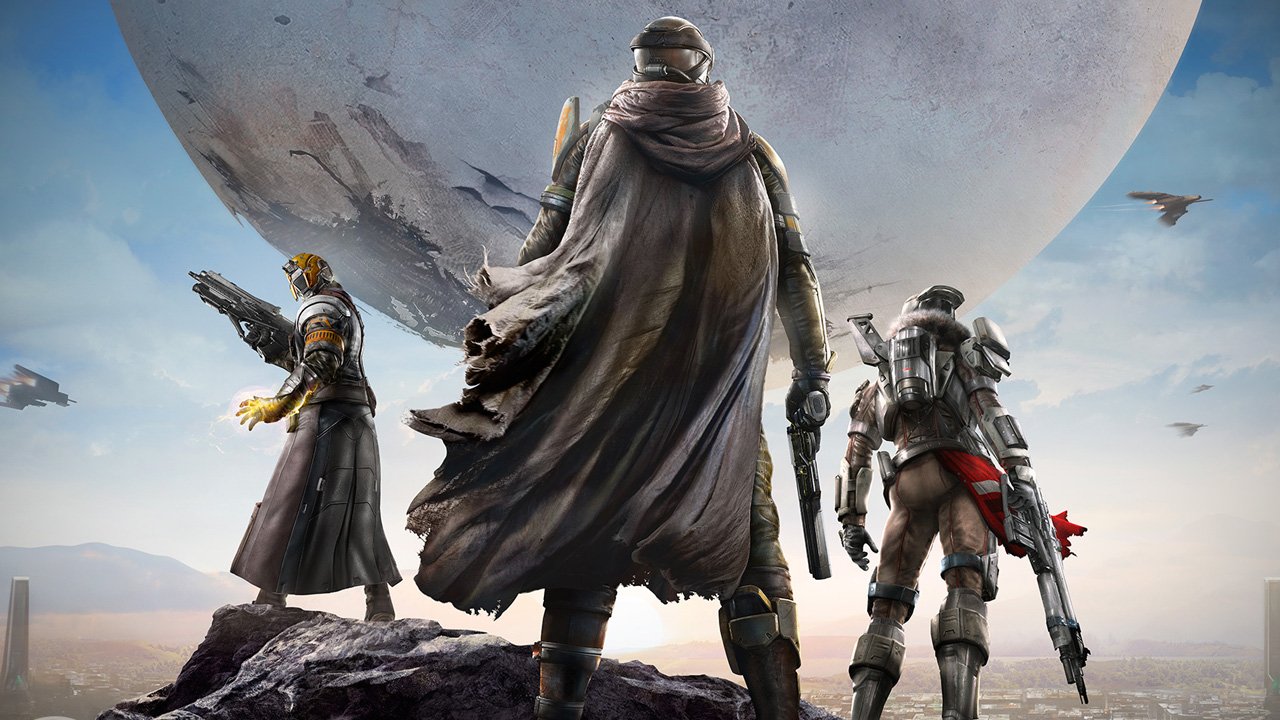For better or for worse, one of the most memorable aspects of Bungie’s Destiny is the Ghost. The floating, omnipresent robot helper follows the player everywhere she goes, providing (usually far too vaguely worded) exposition, hacking doors open, and generally anchoring the game’s minimal plot to its action. It’s surprising, then, that this September’s The Taken King expansion will see Bungie taking the unprecedented step of changing the Ghost’s voice actor not just for the new material, but in the original game, too. The robot, originally voiced by Peter Dinklage, will have its old lines scrubbed, replaced with new readings from the Uncharted and Assassin’s Creed series’ Nolan North.
This is probably a practical move: Dinklage, an actor kept busy with roles in film and HBO’s Game of Thrones, must be pretty expensive and busy enough that booking long studio sessions is difficult. But, maybe more importantly, starting afresh with one of the primary character’s voices also provides an opportunity for Bungie to rework Dinklage’s oddly flat acting—an element of the game that has drawn plenty of criticism since its release last year. Still, even recognizing how much sense the decision makes from the developer’s standpoint, it’s also a bit worrying for those interested in creative consistency.

Videogames are unique in that they can be patched at any point after launch. With most consoles and PCs constantly connected to the internet, developers can issue “fixes” long after their supposedly finished work hits stores. These kinds of revisions are a great way to address technical problems—glitches, bugs, etc.—but they’re also capable of compromising the original vision of a game.
Destiny’s decision to replace Dinklage’s version of Ghost with Nolan North’s isn’t the end of the world, but it is an example of the strange place that videogames find themselves in with regard to revisions. For other media, making changes to a publicly released work is a bit more complicated. Books have to be re-issued as new editions and movies and albums are put out as either director’s cuts or remixes. There are hurdles that have to be jumped in order to rethink the initial version. This is in fairly stark contrast to videogames where remasters, “Game of the Year” editions, and a trickle of patches alter the original title over time, often without clear indications that changes have been made.
The concern with these types of revisions is that they “improve” a game in a subjective manner. In Destiny’s case, there may be players who consider Peter Dinklage’s version of the Ghost an essential part of the game’s tone; “fixing” it with new readings from a different actor makes the experience different from what it once was. The game that audiences have been playing over the last year will soon be unalterably changed.

More disconcerting is the precedent set by BioWare’s Mass Effect 3. Shortly after the studio closed out its popular sci-fi role-playing trilogy, players, upset over what they considered an unsatisfactory ending to the series, launched petitions to have the conclusion changed. After some time, the developer launched a free “Extended Cut” that expanded the game with a new epilogue. The revised Mass Effect 3 ending may have been welcomed by angry players, but it also upsets the idea that the original version of the game was something that BioWare felt it should stand by. Regardless of reception, creators should be able to defend their work. Patching it shows a lack of artistic confidence. Being willing to please the public by going back on a creative decision—especially one as crucial as the end to a sprawling trilogy—means that the developer doesn’t have faith in its original vision.
If players want videogames to be taken seriously, they also have to be willing to live with design choices that they disagree with. Whether they’re meant to resolve issues as minor as a character’s voice or as important as the conclusion to a long-running series, revisions aren’t the answer. Instead, creators should be willing to listen to criticism and decide whether or not to take it to heart in future projects. Altering existing work only erodes the integrity of their initial design decisions.




